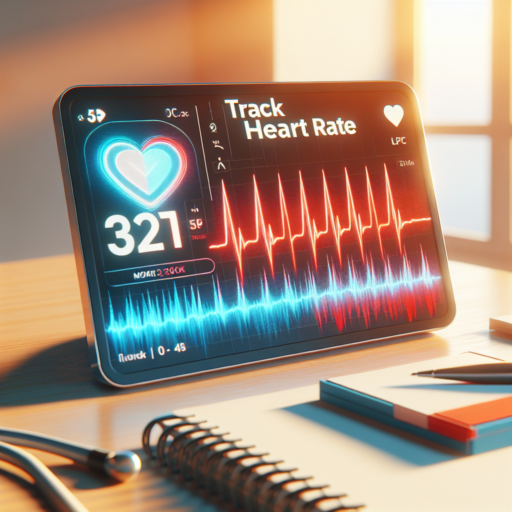Can my phone track my heart rate?
In today’s high-tech era, the capabilities of smartphones are continually expanding, making them an indispensable part of our daily lives. One intriguing feature that has gained popularity is the ability to track one’s heart rate. This functionality turns your device into a personal health monitor, enabling you to keep tabs on your heart health conveniently.
Many modern smartphones come equipped with sensors that, when used in conjunction with specialized health or fitness apps, can measure your heart rate. These applications utilize the phone’s built-in camera or dedicated heart rate sensor to analyze color changes in your fingertip that occur with each heartbeat. By placing your finger over the camera lens or sensor, the app calculates your current heart rate, providing insight into your cardiovascular condition.
It’s important to note, however, that while smartphone heart rate tracking can offer a general overview of your heart health, it may not always be as accurate as medical-grade heart rate monitors. Factors like device quality, user operation, and environmental conditions can influence the accuracy of readings. Therefore, while these tools are excellent for fitness tracking and general wellness monitoring, they should not be solely relied upon for medical diagnosis or treatment decisions.
How to check heart beat online?
Checking your heart beat online has become a convenient way to monitor your heart health right from your home. With the advancements in digital healthcare, numerous apps and websites now provide services to help you track your heart rate without needing traditional medical equipment. Here’s how you can get started:
Choose the Right Platform or App
Start by selecting a platform or app that is renowned for its accuracy and reliability. Look for ones that have positive reviews and are recommended by healthcare professionals. Many of these platforms use the camera and flashlight of your smartphone to measure your pulse by detecting the changes in blood volume under your skin.
Follow the Instructions Carefully
Once you’ve chosen an app or website, it’s crucial to follow the provided instructions carefully. Most platforms will require you to place your finger lightly over the camera lens and hold it steady for a certain period. Ensure that your environment is well-lit and try to be as still as possible to get the most accurate reading. Maintaining calm and steady breathing during the measurement can also lead to more precise results.
Interpret the Results
After measuring your heart beat, the platform usually displays the results instantly. Generally, a normal resting heart rate for adults ranges from 60 to 100 beats per minute (bpm). However, it’s important to remember that many factors can influence heart rate, including activity level, emotional state, medication use, and overall health. If your online results show a significant deviation from the norm or if you experience symptoms like shortness of breath, it’s advisable to consult a healthcare professional for further evaluation..
No se han encontrado productos.
Which is the most accurate heart rate tracker?
Identifying the most accurate heart rate tracker involves considering a myriad of factors, from the technology used to the specific use case scenarios of the devices. Heart rate tracking technology has advanced significantly, allowing users to monitor their cardiovascular health and fitness levels with remarkable precision. However, the accuracy of these devices can vary widely, making it essential to understand the underlying technology and features that contribute to their precision.
Optical vs. Electrical Heart Rate Sensors
Most contemporary heart rate trackers employ either optical or electrical sensors to measure the heart rate. Optical heart rate trackers use a method called photoplethysmography (PPG), which detects blood volume changes in your wrist’s veins through light-based technology. While these are widely used in smartwatches and fitness bands for their convenience, they might not always offer the same level of accuracy as electrical sensors. Electrical heart rate trackers, which often come in the form of chest straps, use electrical signals to monitor the heart rate. These are generally considered more accurate, especially for high-intensity workouts, as they are less susceptible to motion artifacts than their optical counterparts.
Factors Influencing Accuracy
- Fit and Position: The accuracy of a heart rate tracker can significantly depend on how well it fits and its position on your body. A device that is too loose or worn in the wrong position may provide inaccurate readings.
- Activity Type: The type of activity can also affect accuracy. For instance, activities involving irregular movements or complex motions may lead to less accurate readings from wrist-based devices.
- Skin Tone and Tattoos: Studies have shown that users with darker skin tones or tattoos may experience less accuracy with optical heart rate trackers due to the way light is absorbed and reflected.
While the quest for the most accurate heart rate tracker continues, understanding these key aspects can help users choose the right device for their needs. Manufacturers are constantly refining their technology to improve accuracy across a wide range of conditions, making heart rate tracking more reliable than ever before.
How to check heart rate for free?
Checking your heart rate regularly is an excellent way to monitor your cardiovascular health. Fortunately, there are several methods to do this for free, without the need for expensive gadgets or software. From manual counting to using free smartphone apps, understanding your heart’s rhythm has never been easier. This guide will explore straightforward techniques to help you stay informed about your heart’s health.
Manual Method to Check Your Heart Rate
To manually check your heart rate, you simply need your fingers and a clock. First, find your pulse, which can be easily done on your wrist or neck. Once you’ve found your pulse, count the number of beats in 60 seconds or count for 30 seconds and multiply by 2 for a quick approximation. This method is cost-free and can be done anywhere, making it a universally accessible way to monitor your heart rate.
Using Free Smartphone Apps
Technology has made it easier to check your heart rate for free, with numerous smartphone apps available for both Android and iOS users. These apps use your phone’s built-in camera to measure your heart rate by detecting the pulse in your fingertip. While not as precise as medical equipment, they offer a convenient and quick way to get an estimate of your heart rate without any cost.
Remember, while these methods provide a cost-efficient way to monitor your heart rate, always consult with a healthcare provider for a more thorough assessment. These free methods are excellent for general monitoring but should not replace professional medical advice if you have concerns about your heart health.


